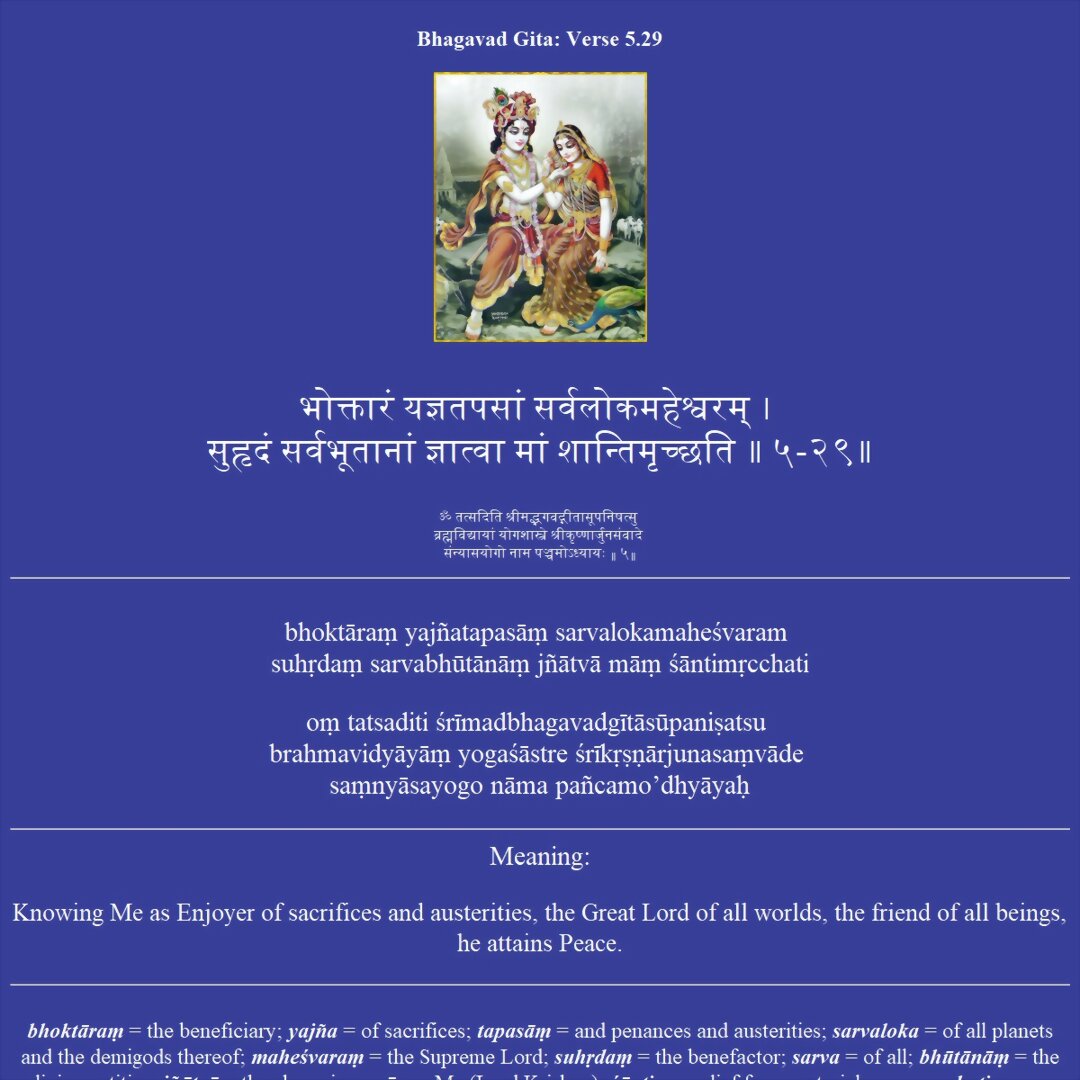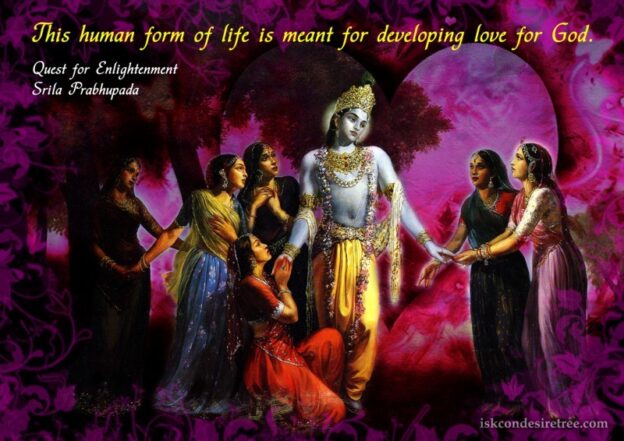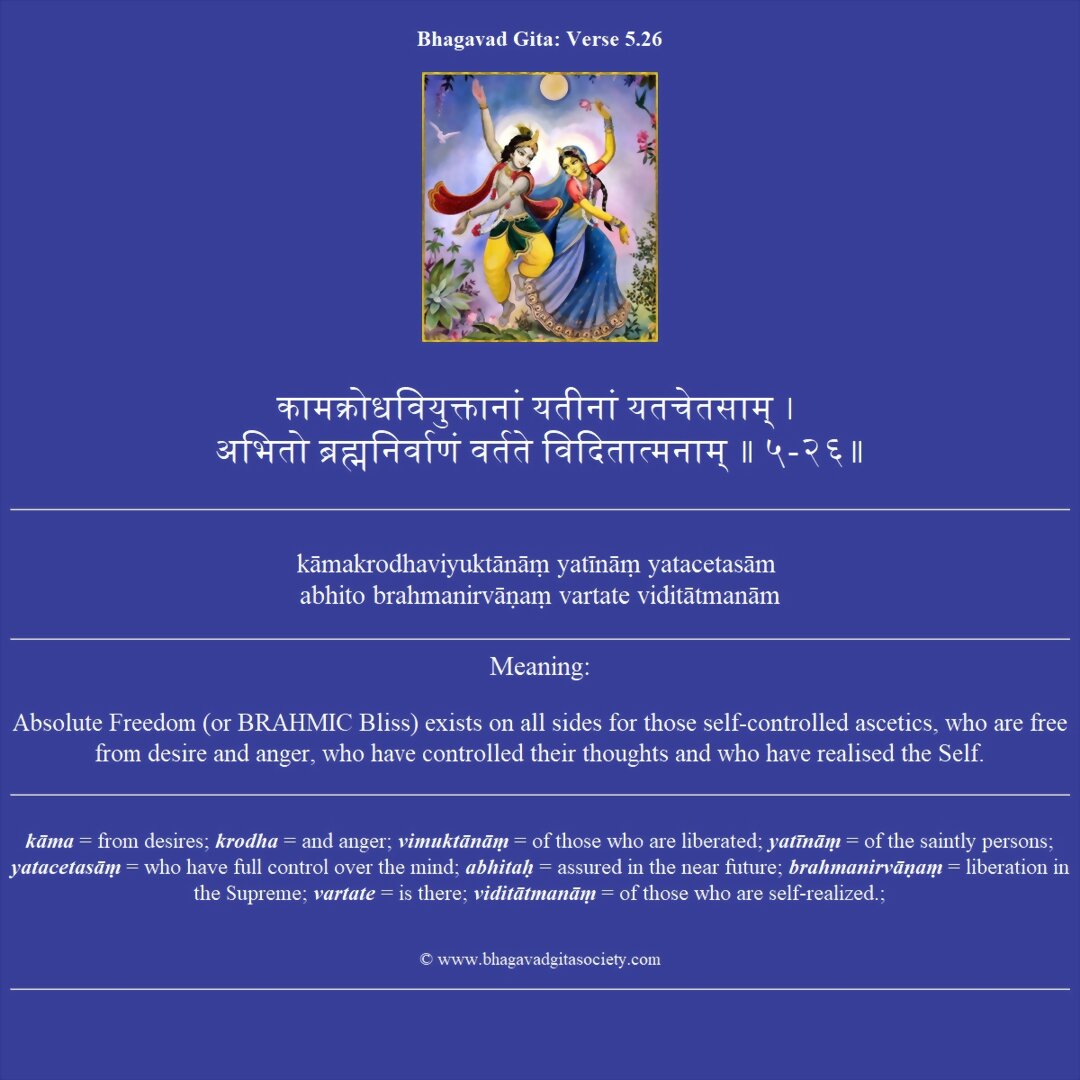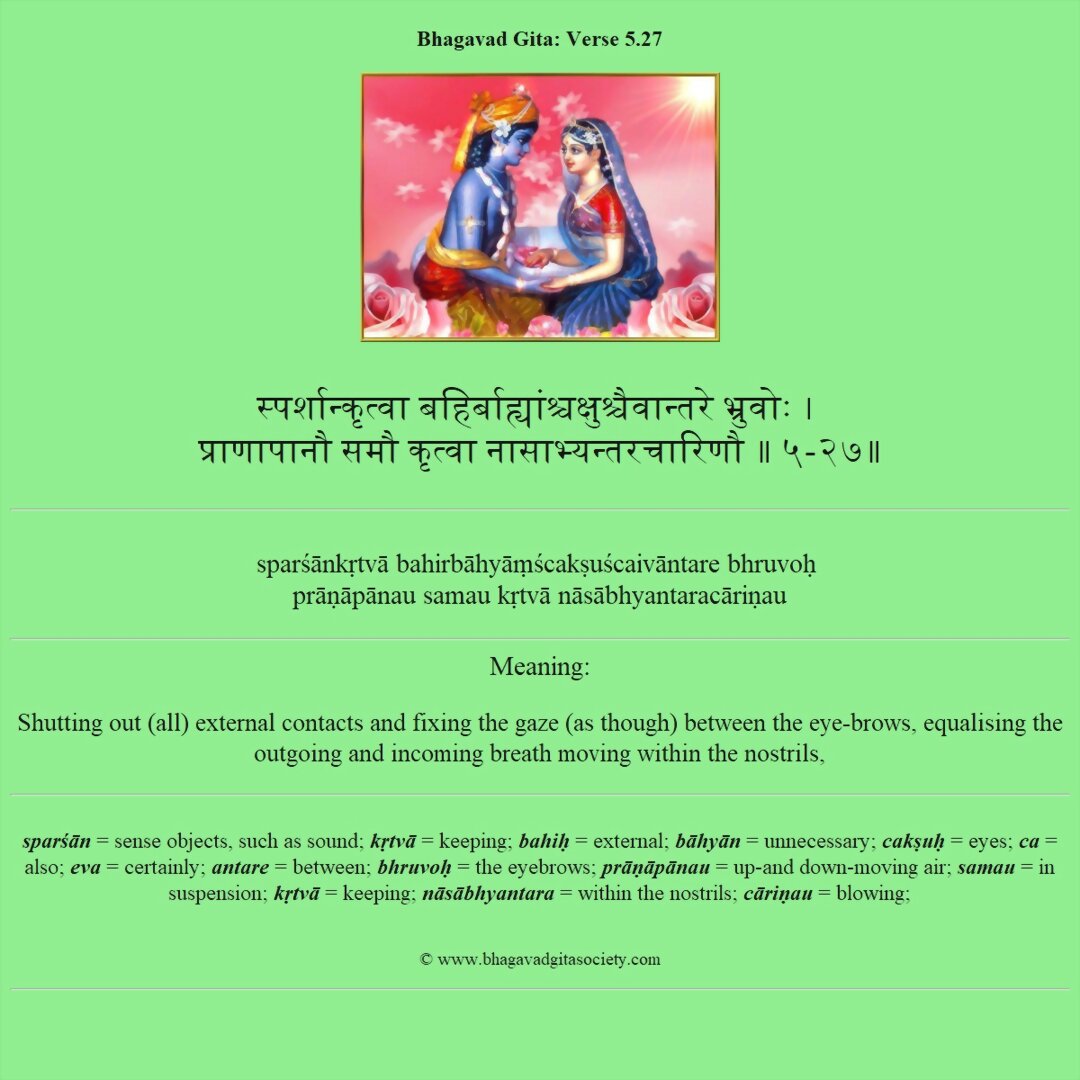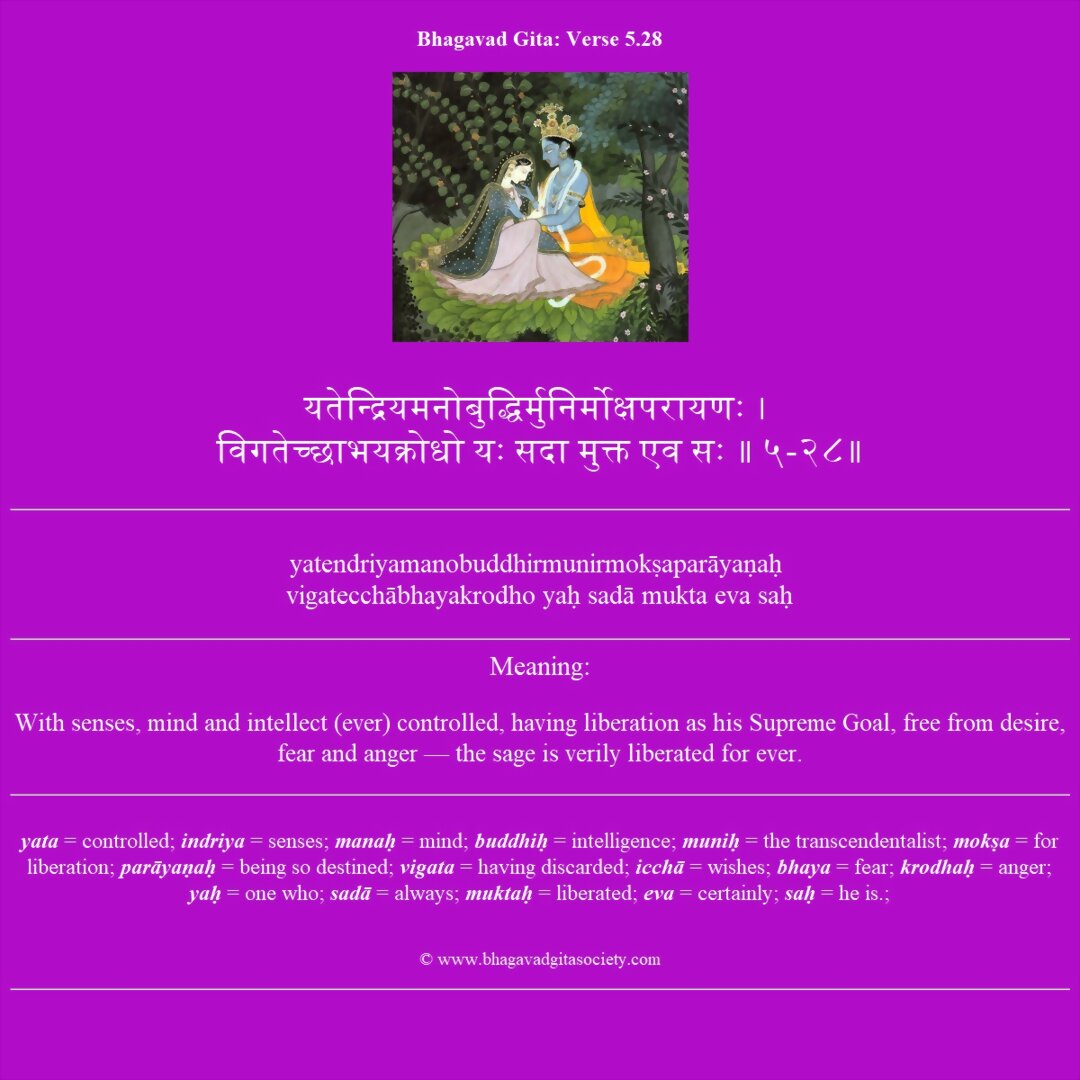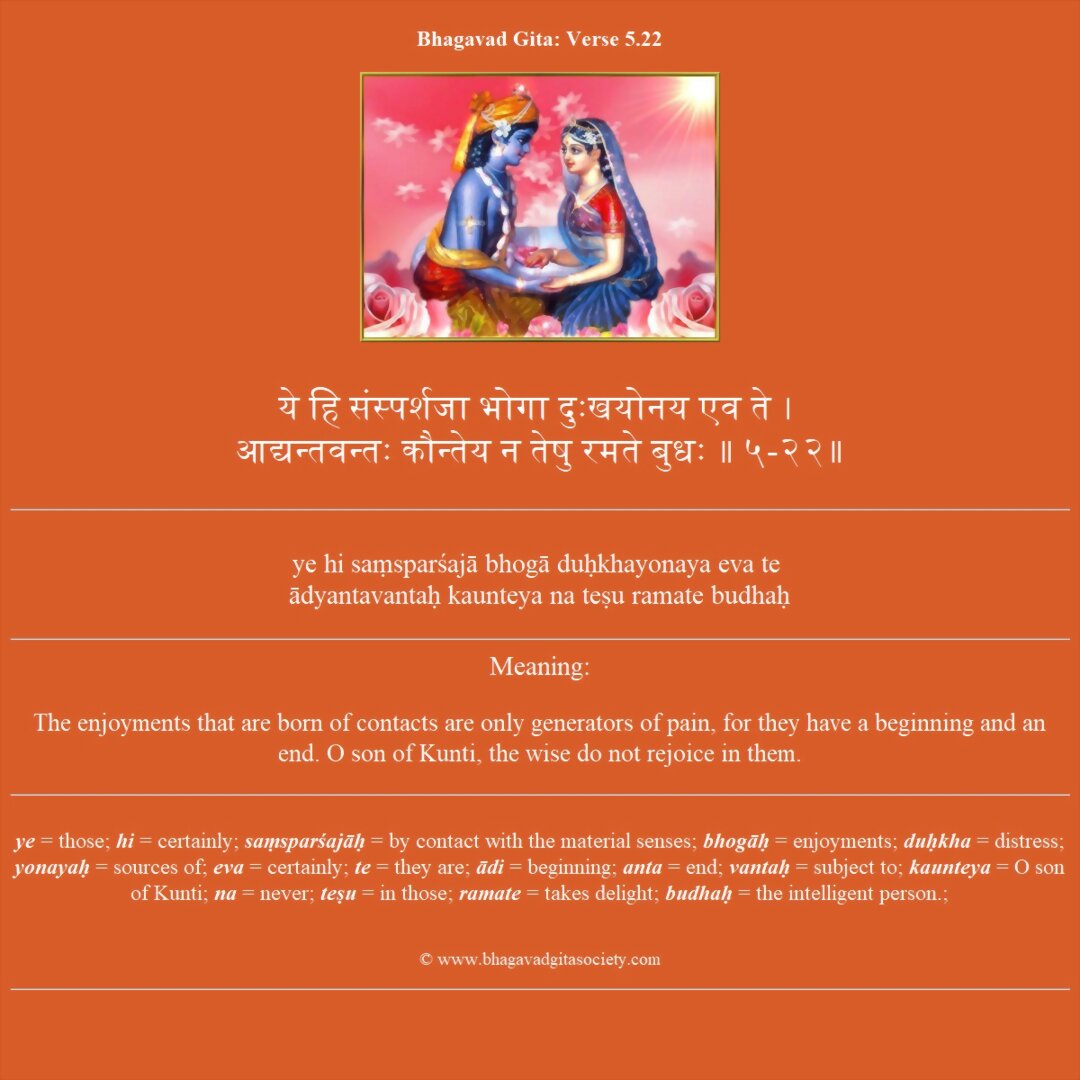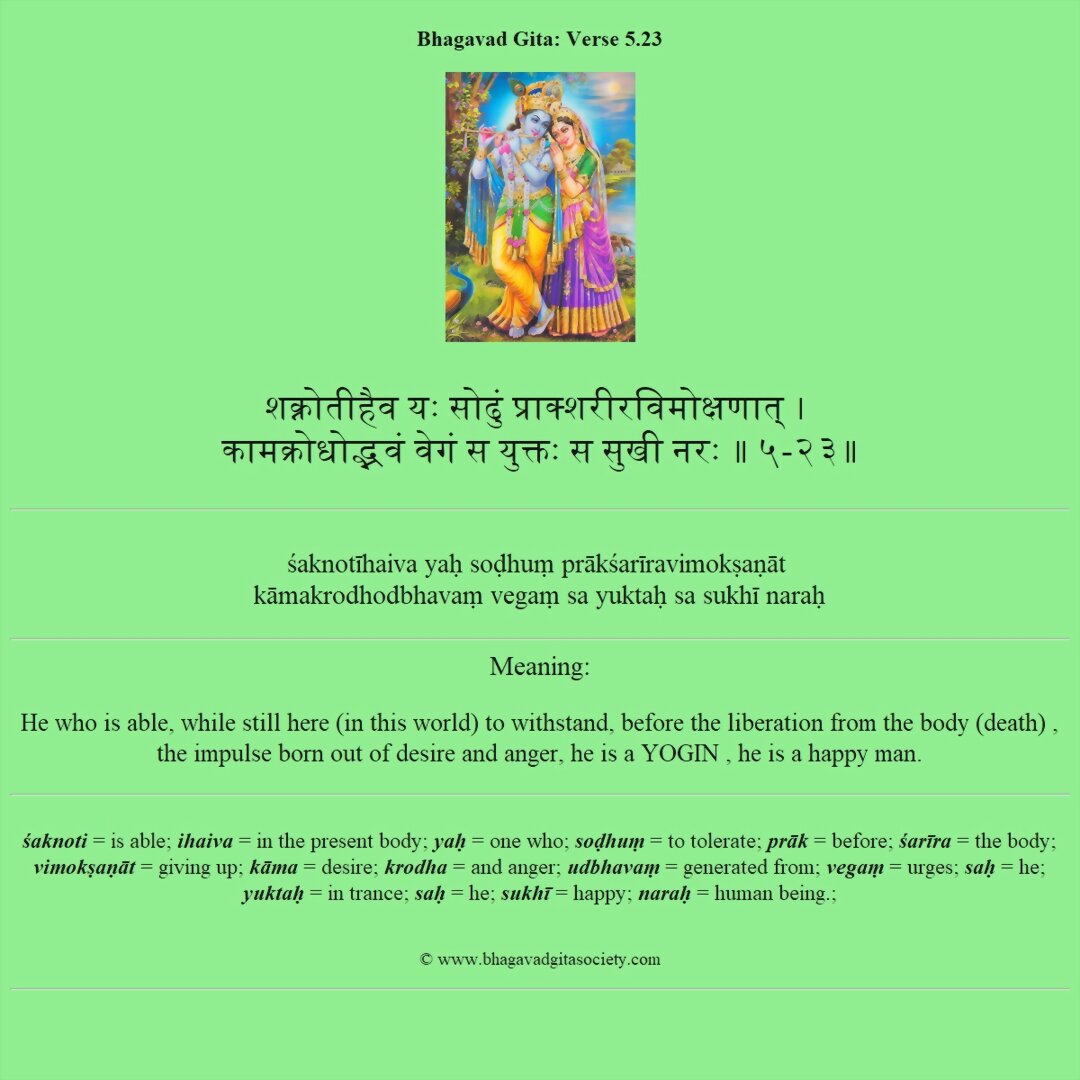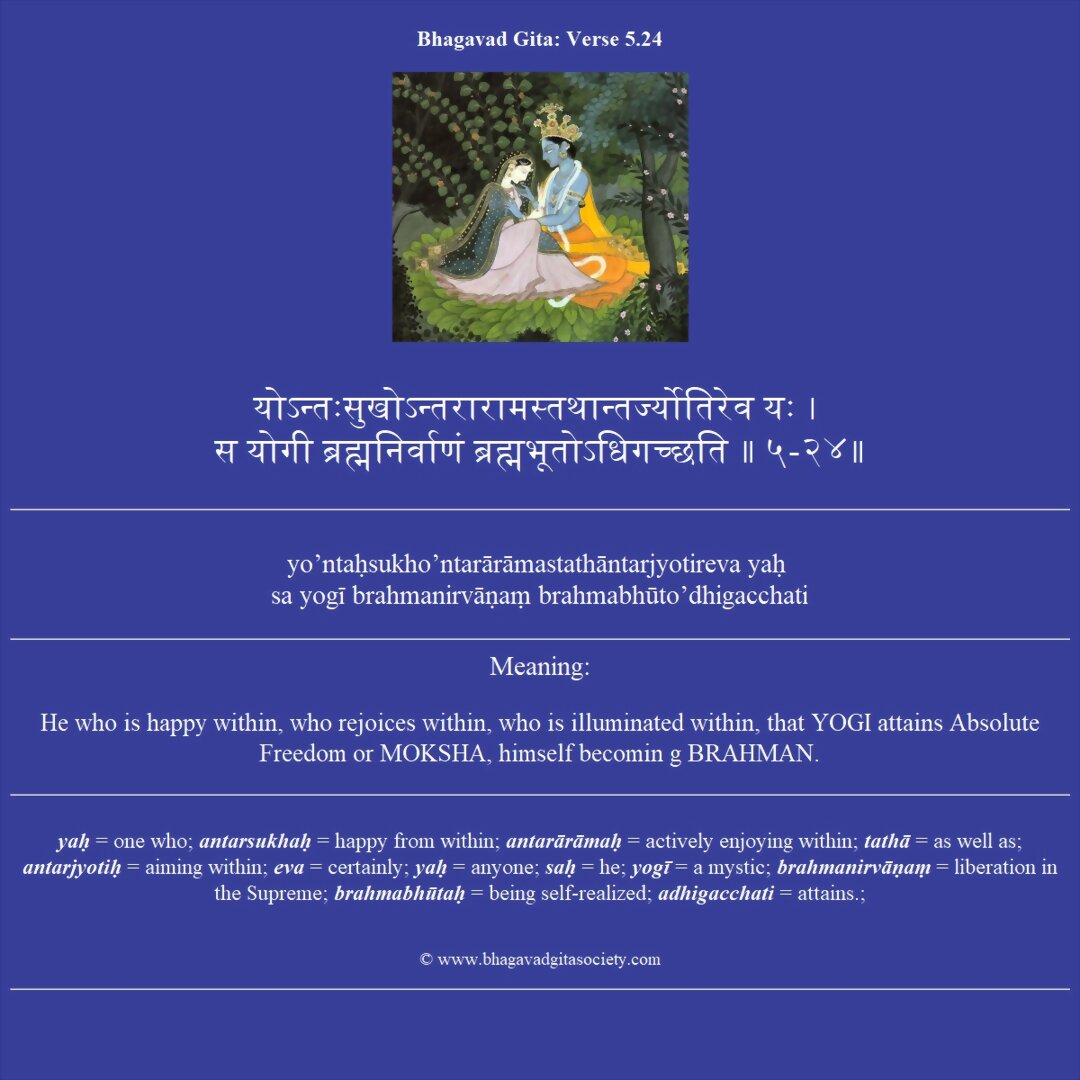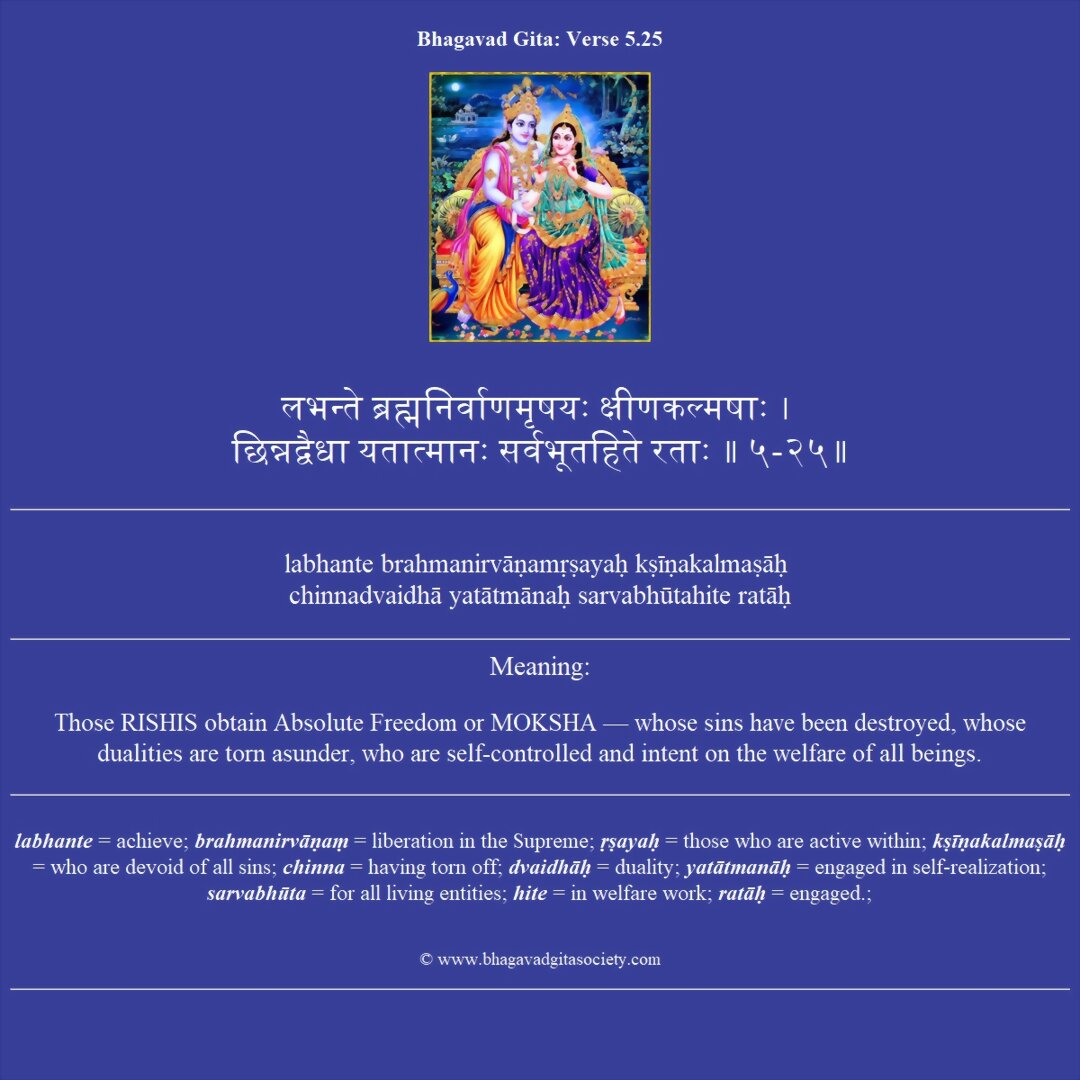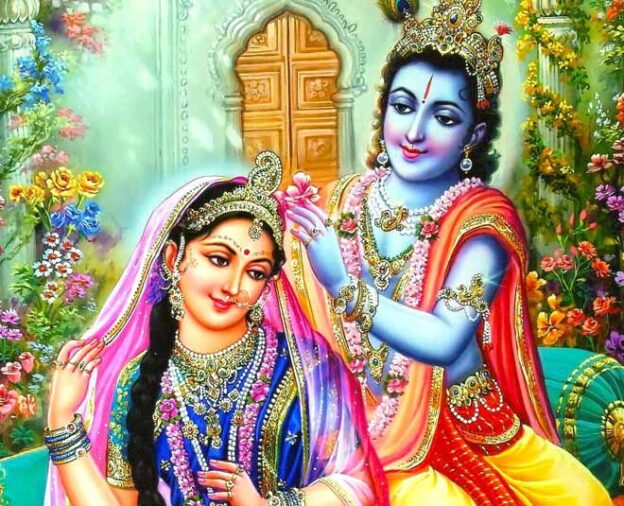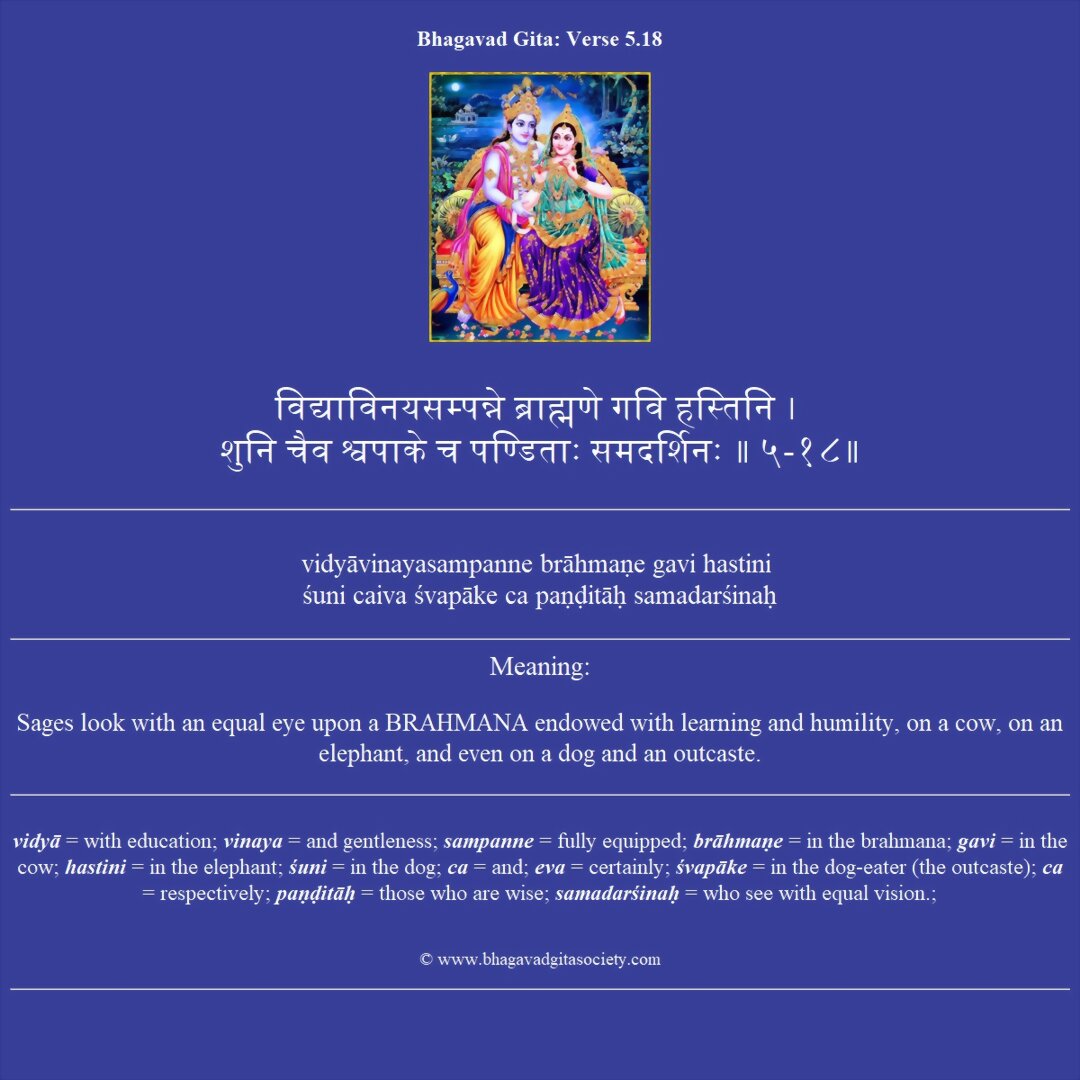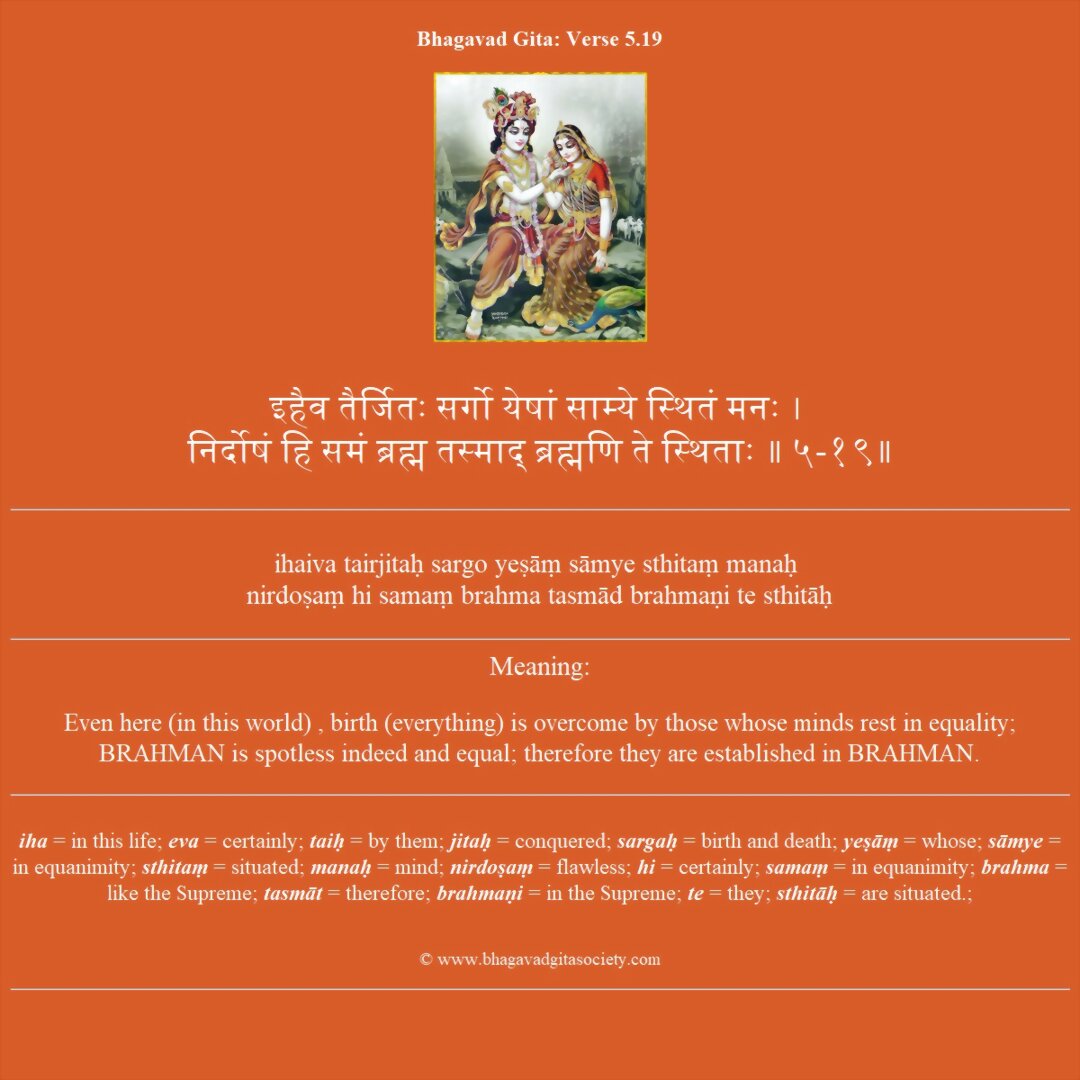Bhagavad Gita: Verse 5.29
भोक्तारं यज्ञतपसां सर्वलोकमहेश्वरम् ।
सुहृदं सर्वभूतानां ज्ञात्वा मां शान्तिमृच्छति ॥ ५-२९॥
ॐ तत्सदिति श्रीमद्भगवद्गीतासूपनिषत्सु
ब्रह्मविद्यायां योगशास्त्रे श्रीकृष्णार्जुनसंवादे
संन्यासयोगो नाम पञ्चमोऽध्यायः ॥ ५॥
bhoktāraṃ yajñatapasāṃ sarvalokamaheśvaram
suhṛdaṃ sarvabhūtānāṃ jñātvā māṃ śāntimṛcchati
oṃ tatsaditi śrīmadbhagavadgītāsūpaniṣatsu
brahmavidyāyāṃ yogaśāstre śrīkṛṣṇārjunasaṃvāde
saṃnyāsayogo nāma pañcamo’dhyāyaḥ
Meaning:
Knowing Me as Enjoyer of sacrifices and austerities, the Great Lord of all worlds, the friend of all beings, he attains Peace.
bhoktāraṃ = the beneficiary; yajña = of sacrifices; tapasāṃ = and penances and austerities; sarvaloka = of all planets and the demigods thereof; maheśvaraṃ = the Supreme Lord; suhṛdaṃ = the benefactor; sarva = of all; bhūtānāṃ = the living entities; jñātvā = thus knowing; māṃ = Me (Lord Krishna); śāntiṃ = relief from material pangs; ṛcchati = one achieves.;
